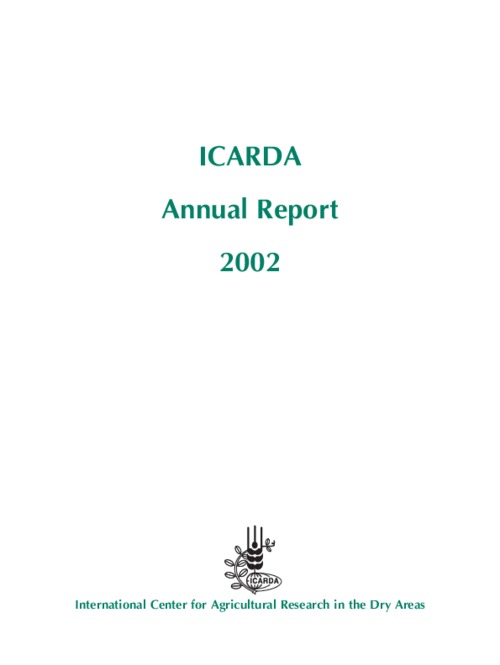Session: Sess. 3
Session: Sess. 3
Sudan, a nation of 36 million people wracked by conflict for 34 of the last 45 years, has generated some four million displaced people during the course of its war. It is estimated that over two million Sudanese people have died as a result of fighting and related starvation and disease. Most…
Using the UNFCCC as a basis, and the objectives of estimating soil organic carbon (SOC) changes during the period 1900–2100, a spatially explicit database of climate, land cover and soil texture was compiled for a 262,000 km2 region in semi-arid Sudan. The area is characterized by low input…
Library has French version: TIC au secours des éleveurs du Sahel
FAO’s goal is to alleviate poverty and hunger by promoting sustainable agricultural development, improved nutrition and food security, and ensuring that everyone has access at all times to the food they need for an active and healthy life. The importance of biological diversity for food security…
The year 2002 marked ICARDA's 25th anniversary, and coincided with several honors and awards for the center's excellence in research. Research on developing high-yielding kabuli chickpea varieties that thrive in cool, wet winter conditions earned the 2002 King Baudouin Award of the…
This report examines the human cost of oil, and corporate complicity in the Sudanese government’s human rights abuses. It finds that oil is an important obstacle to lasting peace in Sudan, and oil revenues have been used by the government to obtain weapons and ammunition that have enabled it to…
This information paper illustrates sustainable dryland management practises in communities vulnerable to climate change with case studies in India and the Sudan.In both cases the adaptation programme is presented, including infrastructural strategy and social involvement, followed by results of…
With an estimated 40 percent of people in Africa, South America and Asia living in drylands, land degradation poses a significant threat to food security and survival. This report looks at the relationship between gender and dryland management based on an analysis of field experiences in Africa…





